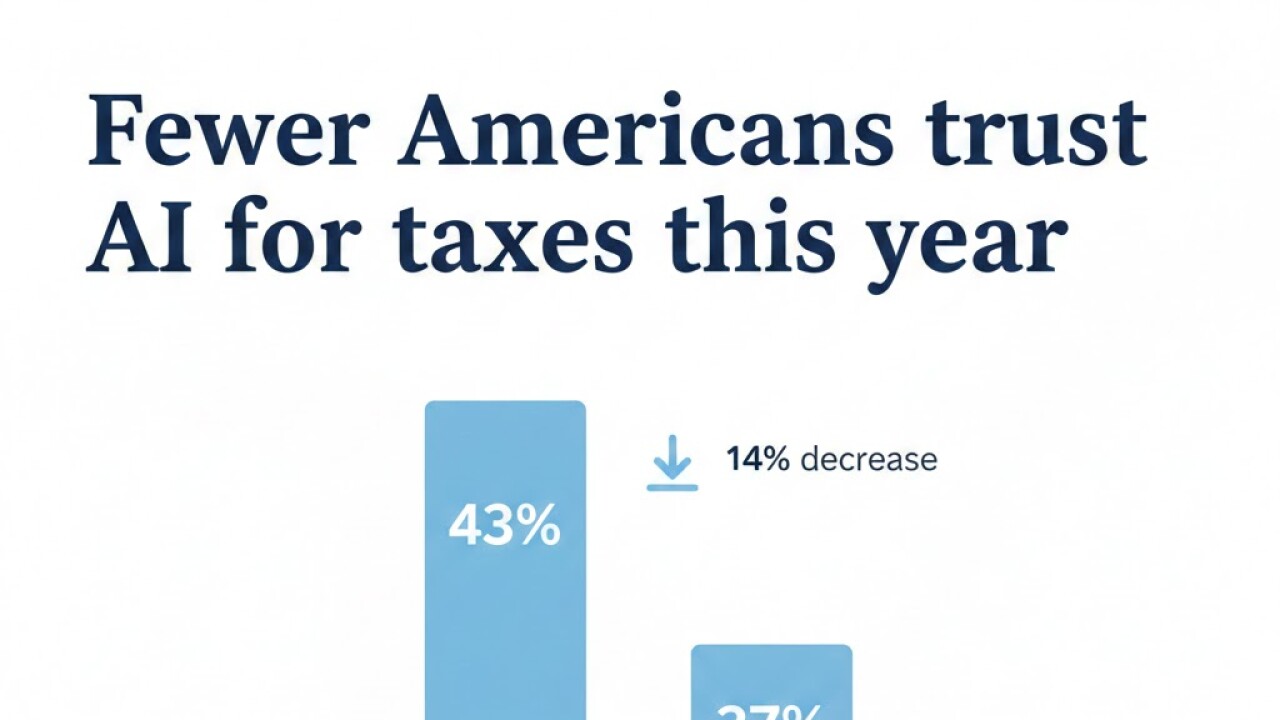by Paul B.W. Miller and Paul R. Bahnson
Much has been written about the portion of President George W. Bush's tax plan that would drastically alter the treatment of dividends. As every accountant has known for years, dividends are taxed twice, first on the corporate tax return and again on stockholders’ returns.
The media cranked out countless stories, some for and others against this cornerstone of the plan. On the positive side are arguments that the dividend change will "stimulate the economy and have important effects on long-run efficiency." (See "The Dividend Bounce," by Burton Malkiel, Wall Street Journal, Jan. 9, 2003.)
However, some questioned the stimulus benefits and the plan’s impact on the federal deficit. Milton Friedman, in a commentary in the Journal (Jan. 15, 2003), defended the tax cut by responding to its critics’ claims that it would increase the deficit: "What is predetermined is not spending but the politically tolerable deficit. Raise taxes by enough to eliminate the existing deficit and spending will go up to restore the tolerable deficit. Tax cuts may initially raise the deficit above the politically tolerable deficit, but their longer-term effect will be to restrain spending." It is an interesting and plausible defense, especially in view of his credentials as a Nobel laureate.
Other critics want the change to be accompanied by a thorough closing of corporate tax shelters and loopholes (see Business Week, Jan. 20, 2003). The small tax bills of some very profitable companies suggest to these opponents that double taxation may be mythical because the earnings distributed as dividends are not always taxed at the corporate level.
Obviously, the dividends issue is important. Even if it seems dead during this session, the buzz it has created across all sectors suggests that it will come back again and again until it is implemented in one way or another.
Unlike other commentators, we are not writing to take a political stand on either side of the issue. Instead, we would like to speculate about another issue -- how behavior will change if dividends are made tax-exempt.
According to Bill Mann’s "The Truth About the Dividends Tax" at The Motley Fool (www.fool.com), removing the second taxation will bring about a profound systemic change in capital markets. He says that investors will consider dividends to be valuable, thereby giving managers "a much greater incentive to return money to shareholders. As it is, companies’ main incentive is to hoard cash. [I]f they have no good use for a pile of cash, they should return it to shareholders. Removing a disincentive from making this decision on a tax-neutral basis is crucial." We see nothing wrong in this supposition.
Another expected behavior change would stem from putting debt and equity financing on a more equal footing. Some have argued that this leveling will reduce debt financing, in turn diminishing managers’ use of leverage and its associated risks.
We concur that the change would fundamentally change dividends’ value to shareholders and increase demand for them. As tax-free (or merely tax-preferred) cash distributions, dividends would be substantially more attractive to investors than they are now, with the consequence that managers would be compelled to make a stronger case for retaining cash instead of distributing it.
Wouldn’t insightful managers be inclined to provide more than minimum financial reports to justify their holding cash? Of course they would, but to be most helpful, the additional disclosures would have to be forward-oriented (and beyond generally accepted accounting principles) to justify plans for the retained funds.
While conventional-minded managers would be sketchy on the details, we would expect smarter executives to be more expansive, especially in the wake of recent accounting scandals that showed how many managers hid a multitude of sins with misleading and otherwise incomplete reporting. The markets have not forgotten, and will not soon forget, the lessons of Enron and WorldCom. They are undeniably much more sensitive to vague or obscure reporting.
Our regular readers can probably see where we’re headed. A change in dividends leads right into Quality Financial Reporting, our proposal to greatly reform financial reporting by challenging managers to voluntarily report more complete and transparent information.
QFR is not a new set of rules to follow but a new mindset that views the capital markets as real markets where companies have to compete for resources provided by investors. Reflecting common sense, economic logic and growing empirical evidence, QFR shows that managers who provide more complete disclosures dispel information risk, thus reaping lower capital costs by making investors satisfied with lower rates of return.
Because embracing QFR requires a paradigm-shattering change in outlook, corporate executives are likely to resist this message. Voluntary reporting is antithetical to the status quo, in which managers guard financial information like trade secrets and provide only absolutely the least information that GAAP standards compel them to.
Here is our connection: We think a change in the tax status of dividends could give executives and managers another powerful nudge to use QFR to build trust with their investors. In fact, we suggest that cash dividends are much better proof of earnings quality than any auditor’s opinion or management press release.
We have been advocating QFR for more than five years. While we were initially met with skepticism and even ridicule, we now find that QFR is gaining more momentum. In response to the scandals and the tsunami of earnings restatements, many managers have already made QFR-like changes in their practices. Expensing stock options is an example of a reform directed at raising credibility. A change in dividend
taxation would be another stimulus down the QFR road.
At the time we’re writing, it looks like the tax change won’t survive the current political climate. However, there is enough support to ensure that it will come back and back until it happens. When it does, the capital markets will be vastly altered and conventional financial reporting will be even more outdated. However, even if the tax treatment isn’t changed, fully informative reporting still makes good sense. The resulting reduction in the cost of capital will create real value for stockholders in any circumstance.
When we were graduate students, we learned a droll adage that taught us to appreciate the limitations of statistical methods. The so-called "Law of the Instrument" applies to other endeavors as well, by saying that when you have a new hammer in your hand, everything looks like a nail.
As staunch advocates of QFR, we may be overeager in our desire to pound on all financial reporting issues with our QFR hammer. However, the warning is equally true for those who would preserve the status quo.
In this changing world, a rising chorus is crying out that conventional reporting is not doing the job. We have held and swung both the GAAP and the QFR hammers and think we have an informed preference for the latter. Which one will be in your hand when you attack the next issue?





